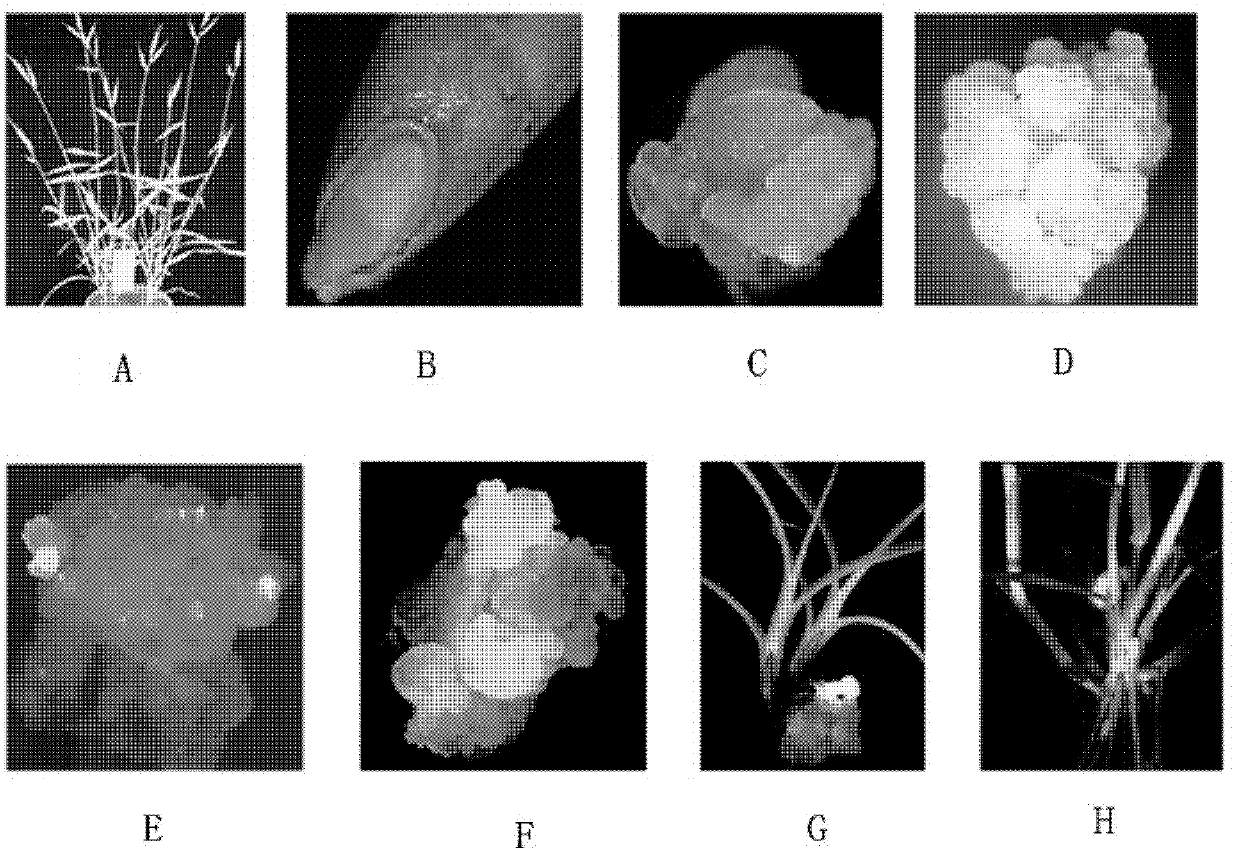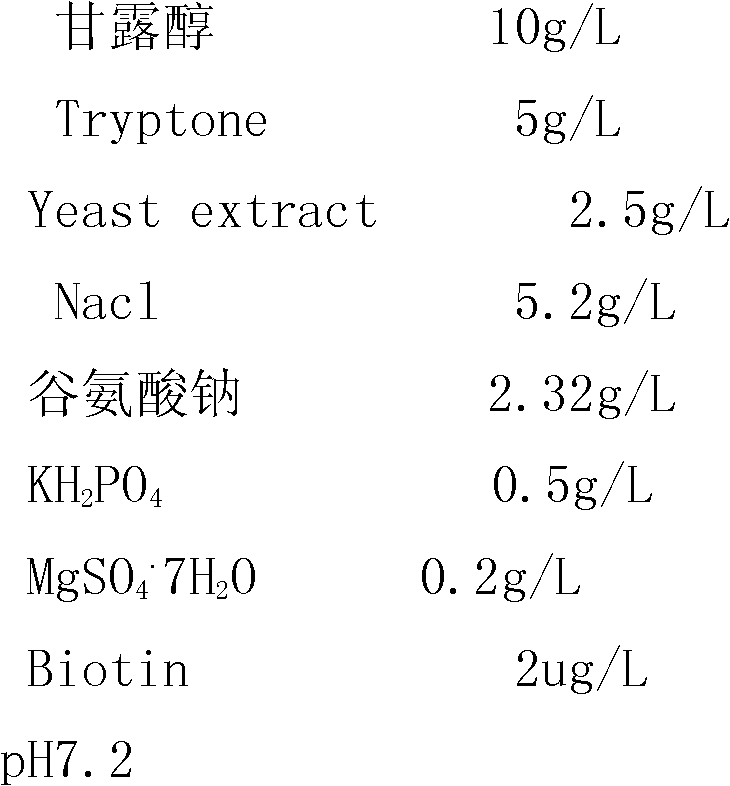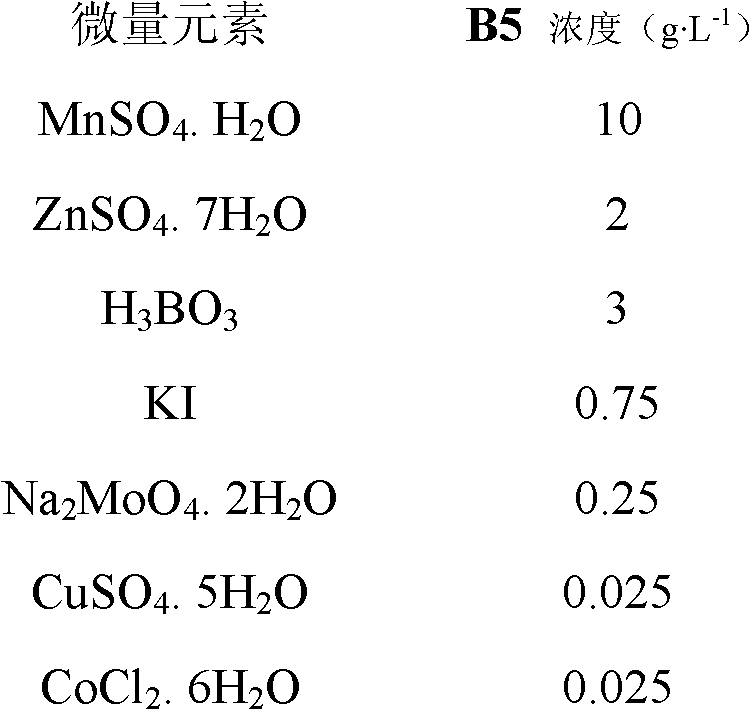Culture medium for cultivating transgenic plant
A basic culture medium and culture medium technology, applied in the field of culture medium for cultivating transgenic plants, can solve the problems of cumbersome operation and unsuitability for domestic application
- Summary
- Abstract
- Description
- Claims
- Application Information
AI Technical Summary
Problems solved by technology
Method used
Image
Examples
Embodiment 1
[0050] Embodiment 1, the preparation of culture medium
[0051] 1. Callus induction medium
[0052] Add 2,4-D (2,4-dichlorophenoxyacetic acid), maltose, L-asparagine, inositol, hydrolyzed casein, proline, thiamine hydrochloride, agar to MS minimal medium , to obtain the callus induction medium, wherein, the final concentration of 2,4-D in the callus induction medium is 2.5mg / L, the final concentration of maltose in the callus induction medium is 30mg / L, L-day The final concentration of paraparagine in the callus induction medium is 150 mg / L, the final concentration of inositol in the callus induction medium is 0.2 g / L, and the final concentration of hydrolyzed casein in the callus induction medium is 0.5 g / L, the final concentration of proline in the callus induction medium is 700mg / L, the final concentration of thiamine hydrochloride in the callus induction medium is 1.5mg / L, and the agar is in the callus induction medium The final concentration of the solution is 7g / L, and...
Embodiment 2
[0062] Embodiment 2, the acquisition of transgenic Brachypodium distachyon
[0063] The flow chart of obtaining transgenic Brachypodium distachyon is as follows figure 1 As shown, among them, A is Brachypodium distachyon Bd21, B is Brachypodium distachyon Bd21 immature embryo, C is callus induction culture, D is subculture, E is exogenous DNA infecting callus block, F is the fluorescent callus block, G is the callus regenerated seedling, H is the positive regenerated seedling.
[0064] 1. Obtaining explants
[0065] Brachypodium distachyon (L.) P.Beauv) Bd21 (Wang Honggui, Wang Baoli, Lin Chentao, Fu Yongfu, Morphological Observation of Brachypodium distachyon (L.) P.Beauv), Northwest Agricultural Journal, 2007, Issue 6, Ersachyon Morphological observations of Pinegrass Bd21, publicly available from the Institute of Botany, Chinese Academy of Sciences).
[0066] Planting of Bd21: Germination: Put Brachypodium seeds on absorbent paper at room temperature for 3-5 days (depend...
PUM
 Login to View More
Login to View More Abstract
Description
Claims
Application Information
 Login to View More
Login to View More - R&D
- Intellectual Property
- Life Sciences
- Materials
- Tech Scout
- Unparalleled Data Quality
- Higher Quality Content
- 60% Fewer Hallucinations
Browse by: Latest US Patents, China's latest patents, Technical Efficacy Thesaurus, Application Domain, Technology Topic, Popular Technical Reports.
© 2025 PatSnap. All rights reserved.Legal|Privacy policy|Modern Slavery Act Transparency Statement|Sitemap|About US| Contact US: help@patsnap.com



